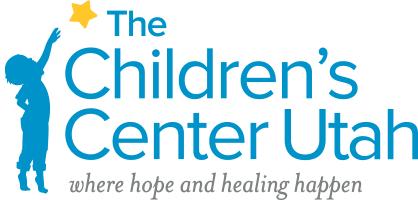“I didn’t give you the gift of life, life gave me the gift of you.”-Unknown
Adoption is one of the many ways that families are grown, and each path to adoption is unique for every child. A child adopted through foster care may have experienced significant trauma and may carry strong memories with them, while a child adopted at birth may have no direct memories. Regardless of a child’s adoptive experience, it is important for families to hold and nurture their own unique stories about how their family was grown through adoption.
Stories can play an important role in any child’s life, and they often are particularly important for children who are adopted. The story that you tell your child about his or her adoption can help your child to build a positive, healthy identity. This might include information about the first day you met your child, how love for your child grew in your heart, and how all the events came together to allow you to finalize his or her adoption. Other typical childhood milestones, like starting kindergarten or going on a family vacation, can also be added to the story to show that your child is a whole person, complex and special beyond the adoption itself. Some families make picture books or other visual aids to help them tell this story, which can be particularly useful with very small children who may not yet understand all the words but will likely enjoy looking at the pictures.
Stories also give families an opportunity to choose and use labels for all the important members in that child’s life. For example, a birth mother might be called a “tummy mommy” while an adoptive mother might be called a “heart mommy.” Other families use terms like “biological,” “birth,” or “genetic” when referring to a child’s family of origin, particularly when talking to older children. Some families simply use the birth parents’ first or last names. Whatever label fits for your family, having familiar words to use for different family members can help children be more comfortable talking about their early memories.
It is also important for children who are adopted to have an understanding of their birth family that is both realistic and kind. If a child only hears negative information about her birth family, she may start to worry that there is something wrong with her because she is being told there was something wrong with her birth parents. This can be especially confusing for children who are adopted through the foster care system (or later in life for any reason) because they likely have some positive memories of their birth family, even though they may have suffered abuse or neglect in that home. Telling a story that includes at least one positive aspect about birth parents can help children understand that it is okay if they still remember nice things about where they used to live. For example, “It was too hard for your tummy mommy to keep you safe, but we do think that she loved you very much.” For children voluntarily placed for adoption, it can help to explain that their birth parents loved them so much that they wanted them to grow up in the very safest home possible. This information is an important part of the story that we tell children about their adoption.
It may seem that it is less important for children adopted at birth to be told that they are adopted or to be provided information about their family of origin. It may even feel protective. However, even for children adopted at birth who may have no direct memories of their adoption history, it is important to tell them their story and include their adoption as part of that story. By telling them their story and your family’s story, you are giving them the benefits of developing a positive and healthy individual identity as well as a positive and healthy family identity. These family stories are also important for your other children, even if they were not adopted.
Many parents may feel a range of both positive and negative emotions when they think about talking to their children about adoption. Feelings of fear or nervousness are completely normal as are feelings of happiness and excitement around sharing your child’s adoption story with them. Some parents may wonder about how best to start the conversation or about what information to give. Let your child be the guide and try not to give too much information that your child may not understand. Keep your answers and guidance as simple as you can to match their developmental level. The questions a 4 year old may have about adoption are very different than the questions a 13 year old may have! Your child’s story and your family story will continue to grow and develop over time so trust that your conversations about adoption and families of origin and childbirth will too. By following your child’s questions and providing simple, yet truthful answers you will create a conversation space that is supportive, loving, and connecting for you and your child.
If you have questions or concerns about how to talk to or help your child who is adopted, it may be useful to seek professional services, such as attachment-focused, trauma-informed therapy. These services are provided at The Children’s Center, or may be accessed through The National Child Traumatic Stress Network’s (NCTSN) website.
-McCall Lyon PsyD & Malinda Freitag CMHC
Clinical Directors at The Children's Center Utah

